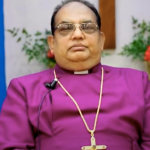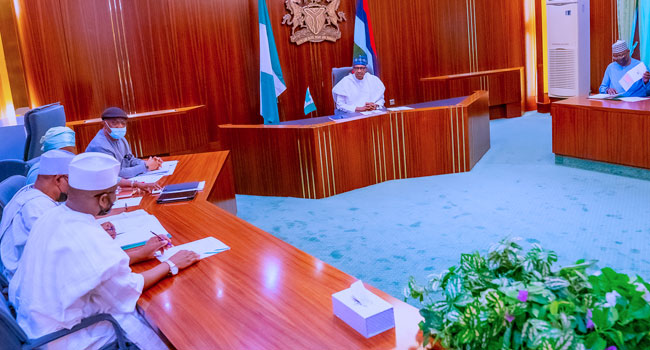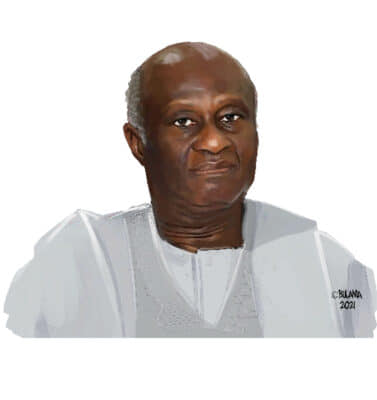The Revd Dr. Lee Gatiss, Director of Church Society has spoken directly to the issues that have presented themselves, Post-Lambeth 2022. He speaks boldly and without mincing his words

Only one bishop within the Church of England, The Rt Revd Rod Thomas has openly stood with the statement of the Global South Fellowship of Anglicans.
Gatiss is the Director of the largest conservative grouping with the Church of England. He made his statement in a video but the text follows.
It will be an encouragement to the faithful members of the C of E who have had enough mealy-mouth words.
It is reproduced fully and with permission. A link to the video addresses is provided at the bottom of the text.
=============
Gatiss said:
Over the summer, I have been finishing off two books for publication. In Living in Mercy and Grace, I am one of a number of contributors looking at “life and ministry in hard times.” My contribution is to look at Titus chapter 3, and what it says about how to handle division in the church as good Christians. In the other book — a new expanded edition of my practical biblical theology of how to handle heresy, called Fight Valiantly: Contending for the Faith against False Teaching in the Church— I have been adding further reflections on church discipline, racism, spiritual abuse, and other matters which have become even more urgent since it was first published.
As I was working on finishing these books off for publication, the news was vying for my attention, because it showed how relevant these subjects are.
I don’t have the authority
In August 2022, Archbishop Justin Welby told the assembled bishops of the Anglican Communion at the Lambeth Conference, “I neither have, nor do I seek, the authority to discipline or exclude a church of the Anglican Communion. I will not do so. I may comment in public on occasions, but that is all.”
I was astonished by this. Because it is simply not true. What he was saying was that he was unwilling to use the power and authority he has, to discipline certain people (the more liberal Provinces of the Communion in this case). For example, he has the power to say with whom he is or is not in communion (a significant matter in Anglican polity). He has power over invitations to the Lambeth conference itself and other such gatherings. He did indeed exercise that power: he did not invite every bishop around the world who self-identifies as Anglican, but only recognized and invited some of them, in certain Provinces, and not others. “Commenting” or even preaching in public at such significant gatherings, as Archbishop of Canterbury (in a big miter and all that archiepiscopal regalia!), is hardly a position of powerlessness.
Hypothetically, if a Province of the Anglican Communion decided officially to deny the physical resurrection of Christ or his deity, would the Archbishop not even consider exercising the discretion he has in such matters? Classically, theologians have called out such heresies and prescribed ex-communication. As Thomas Aquinas (1225-1274) once commented, for example, “if a person were to maintain that God is not triune and one, or that fornication [sex outside of heterosexual marriage] is not a sin, he would be a heretic” (see his commentary on Titus 3 which I discuss in Living in Mercy and Grace).
Perhaps determining what is heresy feels like a technically difficult thing to do these days. Let’s make it easier to see the Archbishop’s logic, with a reductio ad absurdum illustration: If a Province determined that racism was right, or that women were inferior beings who should be enslaved, or that bishops should personally execute death sentences on left-handed people, could he not do anything to signal that a distance had been created between him / the Communion and that Province? The idea is patently ridiculous.
What it appears that Archbishop Justin was communicating at Lambeth, therefore, is that he does not want to use even his moral authority, or his soft power to “comment in public on occasion”, to do or communicate something negative about those who chose to bless what God has not. That was the issue at hand as he spoke: can we bless the same-sex marriage, or not? And rather than clearly identify the glaringly obvious deviation from historic Christian orthodoxy, he spoke very highly of those who deny the truth: their “long prayer” and “deep study” and their view of scripture and of Christ. Those who would have been seen as heretics by every previous generation of Christians across the world were invited and treated as brothers and sisters in full communion. This is indeed exercising archiepiscopal authority, even while he claims not to be doing so; it is exercising it in a way that dignifies soul-destroying heresy with the name of mere “brotherly” disagreement, making orthodoxy optional. And as Richard Neuhaus warns, “Where orthodoxy is optional, orthodoxy will sooner or later be proscribed.”
What actually happened at Lambeth?
In reality, it is still the case that Resolution 1.10 of the 1998 Lambeth Conference — a clear statement of the orthodox biblical view on sexuality — is the official view of the Anglican Communion. As Martin Davie has written:
“The bishops did not vote to change the traditional polity of the Anglican Communion and so the agreed position of the Communion continues to be that provinces have a moral obligation to abide by the decisions made at Lambeth Conferences. The bishops did not vote to rescind, change, or replace resolution 1.10 and so it remains the official position of the Anglican Communion on the matters it covers. The large majority of the provinces of the Communion (representing the vast majority of Anglicans) continue to uphold resolution 1.10 while only a small minority of provinces have officially rejected it or have a position that is unclear. Furthermore, those bishops who hold that the Communion should move away from the position taken in resolution 1.10 failed to make out a convincing case for such a move at the Conference.”
While Archbishop Welby may talk of “radical Christian inclusion”, he has however deliberately permitted a new dynamic — that of including the radically un-Christian — into the life of the Communion, and seemingly given it official recognition. He can no longer, it seems, articulate an orthodox Christian rejection of heresy. This is why he can no longer summon the whole Communion to Lambeth. His role as a so-called Instrument of Communion, therefore, has been profoundly weakened, perhaps irreparably. Inevitably then, the integrity of Communion itself has been deeply damaged. True love, like true art, involves drawing lines — but he has indicated that he doesn’t wish to draw at all. An unholy mess will follow, that will break the bonds of love.
The Welby Way in England
So what is our future in this Province of the Anglican Communion, which we call the Church of England? In one way, nothing has changed. As Martin Davie has said, Lambeth Resolution 1.10 (from the 1998 Conference) remains, and has been affirmed several times already as part of the Church of England’s own position on the subject, whatever other Provinces think. Nothing has rescinded that. To insist on a change in our doctrine and practice in this area would be to reject Lambeth 1.10 (1998), not to mention the 1987 Higton Motion of Synod, and the Church of England’s own repeatedly declared position, which even secular employment tribunals have seen is clear and enforceable. It would create massive further division and disruption within England and within the entire global Anglican world. But nothing that happened at Lambeth indicates or justifies such a change, however many liberal activists who would like that to be the case might try to spin perceptions that way.
Revisionist approaches
Yet we all know that certain people are pushing hard to introduce just such a change. Various bishops have made it clear what they think about Lambeth and Resolution 1.10 on their diocesan websites and in ad clerum letters to their dioceses. It’s possible these days for a bishop to write a book against his own Church’s doctrine on such a foundational matter and appear in court as a witness against it. Such people follow a noticeable pattern:
- maybe say some nice things about conservatives (include the word “flourish” somewhere for effect, and affirm their “dignity”, despite what you consider their reprehensible and minority views);
- perhaps throw in some ambiguous things about the official position (e.g. no major change “is foreseen”);
- all while pushing very hard for a change that would deeply alienate, marginalize, and harm traditional believers (while appointing people to senior positions who despise historic orthodoxy).
We’re not stupid. We do notice these things. We also notice the clunky sleight of hand that keeps expressing the liberal position in terms of loving affirmation of LGBTQIA+ people (So clever! Make the other side out to be un-loving!) — but never mentions the false doctrine that some of them propagate (which is the actual problem). Jesus spoke lovingly to the woman caught in adultery: “Go, and sin no more”. He did not say, “Go on, it’s sin no more.”
In light of such revisionist campaigning, I have previously pointed out 6 possible options for the Church in the light of Living in Love and Faith, on the issue of marriage and sexuality. What do events from the summer tell us about the Welby Way, the direction that the Archbishop himself is pushing in?
The Archbishop’s job is a very difficult one and he deserves our prayers. But let us not be bamboozled by suggestions that he has no power to effect change in situations where he is literally at the head of the table. He is exercising that power now, and Living in Love and Faith seems to embody his “value pluralism” approach, as we have pointed out before. It is all about living with confusion and unbelief.
What’s more, an archbishop also has power over appointments to his staff, and what they signal to the wider world about his priorities and opinions on disputed matters. Some recent senior appointments have not been entirely encouraging on this front, it must be said, but feel like a slap in the face. All bishops have this power of course: we cannot simply listen to what they say to us in positive private conversations, and ignore provocative appointments to prominent positions which alienate, marginalize, or undermine biblical and creedal orthodoxy, for example. Friendly words can distract from unfriendly actions.
That seems to be the most likely strategy over the next few months. Speak warmly of “both sides”, to try and make us all think of each other as just brothers and sisters with a bit of a disagreement. Peace and reconciliation can bring us together, as it has brought people together in other places, it is said.
Our way forward
Some of us see the orthodox biblical position on these disputed matters as the best way for all human beings to flourish in God’s world. We have no desire to undermine the traditional and historic Christian view or see its complete antithesis acknowledged as a valid option. We consider that to be the most un-loving, unkind, spiritually damaging, and eternally negative thing to do. A so-called “pastoral accommodation” compromise between conservative and revisionist approaches just isn’t going to work.
So what should we do? Another Archbishop Justin — Archbishop Justin Badi from South Sudan — said it provocatively but well at the Lambeth Conference: “When the snake enters your hut, you don’t run away. You struggle and let the snake go out because it is your house. So we are not leaving the Communion, as it is our home.” Some people dislike this image of the snake and would prefer weasel words instead. But Justin Badi is right, that there is an obvious threat from “another gospel”, which cannot be simply accepted without some pushback. The hut doesn’t belong to the snake; it is a cuckoo.
So we stand firm and fight on. We must practice the vital spiritual discipline of applying and promoting the gospel lovingly in a context of opposition (which is how I define the biblical doctrine of contending for the faith, in Fight Valiantly). The church that becomes dominated by tolerance, rather than truth, will soon become tyrannously intolerant of absolute truth — like a tent with a snake in quickly becomes an inhospitable environment for humans. That means we cannot allow a “we’re all brothers and sisters and need to learn to live together with our disagreement” way of resolving things. This betrays the truth of God’s word and denies Jesus’s basic call to “repent and believe”.
But courage urges us to stay, not cede the house to those who want to take it all for themselves. We must love them as people made in God’s image, and seek their eternal good. But there is venom around, which is dangerous to permit, and we would do well to maintain a spiritual distance from that.
This also means we cannot allow an “I have no power to discipline anyone!” approach to taking over the bishops of the Church of England, as it seems to have taken hold in Lambeth. It is a core requirement for bishops to discipline the flock so they follow the Good Shepherd’s voice. If they don’t do this (as I note in my exposition of Titus 3 in Living in Mercy and Grace) they are neglecting their essential task of spiritual safeguarding. For this, they will be brought to account not just before the bar of public opinion but before the Almighty himself on the approaching day of judgment, when we will all have to give an account for how we have used the power given to us — including you, and me, and the House of Bishops. I do not think that the apparent worldly wisdom of the Welby Way, will be of much use to us on that day. We must follow the Way, the Truth, and the Life by whom alone we may come to the Father (John 14:6).
Revd Dr. Lee Gatiss is Director of Church Society, author of Fight Valiantly, and editor of Living in Mercy and Grace.







